|
In my life, there have been many dreary days when the sun did not shine and it was too wet to go out and too cold to play ball. On those days I could read and travel around the globe with books. Sometimes I went to places that were real and sometimes I traveled into Narnia or Wonderland. In my travels, I discovered that from there to here, from there to there, funny things are everywhere.
When I grew up I became a teacher and had students who would rather eat green eggs and ham than read. They wouldn’t read in a box or with a fox, in a house or with a mouse, but with some work most discovered that they liked reading everywhere. March is celebrated as Reading Month by schools and families across the country. Special days and contests are designed to help students discover the joys of reading. We celebrate reading in March because March 2, is the birthday of Ted Geisel, better known as Dr. Seuss. Geisel did much to expand the library of children’s literature by creating high-interest stories as an author-illustrator as well as the editor of Beginner Books. He worked with P.D. Eastman and Stan and Jan Berenstain to create a library of titles that would motivate children to read including Go, Dog, Go and Old Hat New Hat. One of his requirements was that the illustration on the page had to match the words to help struggling readers self-correct. This year, the day is being swallowed up by controversy about the work of Dr. Seuss. I’ve seen more posts about the controversy than I have about reading month! So here’s my plan of action - I’m going to move forward without heeding any of the articles because they don’t affect me and I doubt they affect you. One story states that a school district in Virginia is dropping Dr. Seuss and another states that six books will no longer be published. Although I have opinions about these issues, neither announcement has any immediate effect on my life. I don’t live in Virginia and I already own a copy of And to Think That I Saw It On Mulberry Street. Andy Warhol predicted a world where everyone would be famous for fifteen minutes. I’ve seen people achieve those minutes in a variety of ways but it seems like a current popular method is to cancel something. People start sharing their approval or disapproval and soon it’s all anyone can talk about. But what happens then? We aren’t talking about the benefits of reading, rather we are arguing and fighting for something that really has no impact on us. I’ve seen many shares of the anti-Seuss campaign with great consternation and while this is understandable it has to stop. Social media gives you a positive feedback loop so the majority of what you see affirms your own viewpoints. This gets us nowhere. I strongly encourage you to read “The Zax.” It’s only a few pages long and can be found in The Sneetches and Other Stories. (That whole book is incredibly relatable right now. In “The Sneetches,” Sylvester McMonkey McBean takes advantage of the Sneetches by exploiting their desires and encouraging divisiveness.) In “The Zax,” a North-Going Zax and a South-Going Zax run into each other while walking across an open plain. Neither would deviate from their course and so they stayed butting heads for a couple of years until the growing world grew around them. Arguing with people on social media feels like that. I can argue and refuse to deviate course but what will that accomplish? So today, I’m asking you to join me. Don’t be a Zax. Don’t let Sylvester McMonkey McBean manipulate you. Pick up a book and read. If you can, read a Dr. Seuss book aloud today. Luke (age 2) was delighted by Green Eggs and Ham this afternoon and I plan on reading and discussing some of The Sneetches and Other Stories with Logan this evening. Read The Lorax and discuss conservation or read The Butter Battle Book and discuss nuclear proliferation. For a taste of what it feels like to age read You’re Only Old Once, but follow it up with something positive and inspiring like Horton Hatches an Egg. I know it’s upsetting to read about things “getting canceled” but you don’t have to participate. No one is coming for my books (yet) so I’m going to fight back against cancel culture by going around the “other Zax” and sharing my love for reading and learning with others. At night, don’t spend time fretting over what others are doing or refusing to do, rather inspire those whom you have the ability to influence then lay your head down saying, “Today is gone. Today was fun. Tomorrow is another one. Every day, from here to there, funny things are everywhere.”
2 Comments
It was few days into the New Year and I found myself sobbing while sitting on the floor amid a mess of Christmas decorations, storage boxes, and semi-decorated trees. Every year I like to take the ornaments off the trees while watching the Rose Parade. Jason and Logan wish the decorations would stay up a little longer but I like starting January 1 off by putting Christmas away. Our little debate has become a tradition and one that I didn’t know how much I loved until it was gone. No Rose Parade, no decorations taken down and, suddenly, everything was just “off” about this new year.
I knew there wouldn’t be drastic differences between December 31 and January 1, yet there’s always that hope ushered in by a new year and it was already dashed. Everyone had so loudly protested that 2020 was the worst year ever and the idea that its end would bring a promise of change. Now 2021 was only a few days old and the virus was still here, political tension reigned in the land, and 2021 was proving that hope in this new year would provide disappointment. Eventually, all the Christmas decorations did come down and the house is now back in order, or at least our version of it, but I’ve been thinking a lot about hope. Not the hope that hopes I find my lost keys or the hopes that I have for Logan’s future, but rather the hope that my heart looks to when it is in trouble, the thing that anchors my soul. The song lyrics, “My hope is built on nothing less than Jesus’ blood and righteousness,” have been stuck in my mind and I’ve been thinking a lot about Hebrews 6:19 “We have this hope as an anchor for the soul, firm and secure.” Today’s Word: Hope One syllable. Pronounced [hohp]. Verb. Defined on Dictionary.com as “to look forward to with desire and reasonable confidence; to believe, desire, or trust” As Biden was sworn in as President of the United States people around our area began shooting off fireworks. Of course this sent Samoa scrambling upstairs convinced that we were under attack and that it was every man, or dog, for themselves. Today my social media feeds are full of celebration and hope for the future. People are happy that their daughters have hope in Kamala Harris becoming VP. People are looking forward to so much and it makes me sad. I’m not sad because I hate the elected officials or because I disagre with their idology. I’m sad because I see people building on the wrong foundation. In Matthew 7:24-27 Jesus tells the story of two builders. One builder built his house on the sand. I’m sure it was a great house with a great view, but when the storm came the house fell flat. Its foundation was unstable and provided no protection. The other builder built his house on the rock. Maybe this house had a great view as well or maybe it didn’t, but what matters is that when the storm came, the house stood firm. It didn’t fall down or suffer damage. My favorite image to illustrate Psalm 46 is that of a lighthouse pelted by giant waves. God is our refuge and strength and so because of that we can be still and know that he is God. The quality of the building materials isn’t the point here. This isn’t the story of the three little pigs. This is about foundations. What is your house built on? My literal house is built on a solid foundation that includes a basement. My spiritual house is also built on a solid foundation, the Lord Jesus Christ. I know that I have a created purpose so I seek to fufill that purpose with confidence in a future hope. Please understand I am not being critical of those who are hoping in VP Harris. I don’t know if she will meet their expectations for her or if she will fail to meet them, but I know she is human and that in this era of cancel culture we have seen so many people fall from the favor of those who once supported them. Today, people who once cheered for and supported VP Pence are calling him all sorts of names including traitor. The point is that people dissapoint. In this era of the mind-bending convergence of cancel culture and “don’t judge me” attitudes, it is radical to say that one thing is sure and trust worthy. We are in an era when nothing and no one seem trust worthy and yet I choose to trust God. I have seen Him working in my life over and over and I will follow him. I don’t do this because I’m a wonderful person. I am a person who really wants that beach front house built on my own fabulous ideas, but I’ve seen the damage done by storms that have destroyed my attempts to build anything off a solid foundation. So where is your hope? Is it in someone or something that might disappoint or is it in the unmovable and unchanging God? I’m currently reading through the Bible using the R. M. M’Cheyne reading plan which will take me through the Old Testament once and the New Testament and Psalms twice. I’m not doing this because I want to check a box everyday but because I want to know the God that I serve. I want to live in the knowledge of him so that I can honestly say, “For me, to live is Christ and to die is gain.” I’m not certian of anthing this 2021 except for knowing that God is the unchanging and unmovable rock I upon which I will build my life. In just a few days Hamilton: An American Musical will be debuting on Disney+. When I first heard this news I was elated. I’ve seen the stage production in Chicago twice and listened to the original cast recording many times. I wanted to take the time today to tell you a little about it before it airs on a streaming service with so much content for children. If you have Disney+, you know it’s great. The vault has been opened and users have access to (almost) all the movies Disney has created. That said, it is important to keep in mind that not all movies on the service are appropriate for children. Some, like superhero movies, are violent and not appropriate for small children. Which brings us back to Hamilton. As I said before, I thoroughly enjoy the musical but always shudder when I see young kids listening or attending. Here’s why. There are several objectionable elements that make the musical inappropriate for young kids.
He concludes that he wrote his own successes in the past and decides to do it again. This time his writing exposes his family to shame and he finds that he can not write himself out of every situation. Later in the song “It’s Quiet Uptown” Hamilton receives forgiveness from his wife and we see a beautiful example of redemption. I’ve heard immature listeners quote “Hurricane” as a type of mantra but that lacks the understanding of its place in the story.
So, there are the negatives. With all that you may be saying, “Um, Edy, why are you a fan of this show?” Yes, there are negatives. But there are many parts of this musical that lead me to rank it up with my favorites including The Phantom of the Opera and Les Miserables.
I'm currently reading a book called Oh, Ranger! It is a collection of stories and essays written by National Park Rangers. I was moved by an essay written by Shelton Johnson, an African-American National Park Service ranger. While looking through photographs at Yosemite's research library he found a photograph of 25 African-Amerian soldiers who had protected the land from ranchers who were grazing their animals on park land. Their names are not recorded but these soldiers protected Yosemite until they were relieved by another regiment who noted their excellent service. Often African-American men would choose to serve in the military because it was one of the few jobs that provided a pension available to them. That said, they still failed to receive proper respect. Ranger Johanson wrote them a letter thanking them for their service and for allowing himself to be caught up in their story. I found the ending particularly poignant: "Thank you for clearing the trail that I followed 100 years later. You cannot imagine how your passage has made my journey infinitely easier, as I hope mine will be for those who follow." My heart hurts when I read stories about violence against others because of how they look. These stories go back for hundreds of years and involve all sorts of people. They are sad, dark, and full of hate. Do you hate these stories too? Perhaps, like those soldiers who protected Yosemite, we can do some things to make the journey of those who follow us a bit easier.
If you ran yesterday and posted about in on social media, good for you. Now keep running. Keep moving. Call someone in an elected office. Create a petition. Volunteer to help others. Look each person you meet in the eyes and see them as a life created for a purpose. One of my favorite preschool memories is Jay asking Maddie what color her new baby was going to be, brown or white. Maddie, whose mom was very pregnant, was the only fair-skinned child out of my 10 students. She looked around the room and said, “I don’t know, probably brown.” They honestly didn’t know why our skin looks the way it does. It appeared to be about statistics to them and asking about it was as casual as asking a friend to pass the playdough. Aging robs us of the innocence of youth but it doesn’t have to rob us of our curiosity. Below I’ve provided a list of books that have helped me get into the lives and experiences of those whose heritage I do not share. True these are fiction, but the experiences of the characters are very real. I, like Ranger Johnson, thank those who have come before me. I come from a line of curious and compassionate people. My wish is that my life will pave the way for future generations to share God’s love with the world as I try, yet often fail, to do. Copper Sun by Sharon Draper
Elijah of Buxton by Christopher Paul Curtis The Watsons Go to Birmingham, 1968 by Christopher Paul Curtis Stella by Starlight by Sharon Draper Finding Someplace by Denise Lewis Patrick Chains by Laurie Hase Anderson Brown Girl Dreaming by Jacquline Woodson Roll of Thunder Hear My Cry by Mildred Taylor A Long Walk to Water by Linda Sue Park Underground by Jean Ferris I remember checking out videos from the library and after finishing them removing the video from the VCR and putting them in the rewinder. To this day, I can't hear, "Be kind" without thinking rewind. Today is World Kindness Day according to the Facebook posts and my morning greeting from Alexa. I am tempted to research how long World Kindness Day has been a thing, who started it, and who is celebrating it, but instead, I’m going to refrain from that extraneous research and go with it. On my recent trip to Seneca Falls, New York, I learned a great deal about kindness and the great impact ordinary individuals can have on the world around them. We arrived in Seneca Falls after sunset. The small downtown area was decorated for Christmas, a gentle snow was falling, and the church bells were ringing out “How Firm a Foundation.” I told my sister that I was reminded of Bedford Falls, the town from It’s a Wonderful Life and she immediately agreed. As we were checking in, the hotel clerk gave us a list of area attractions including the It’s a Wonderful Life Museum. He explained that Seneca Falls is the town that Bedford Falls is based on. Our days there included a visit to the Women’s Rights Historical Park, Elizabeth Caddy Stanton’s home, William Seward’s home, and Harriet Tubman National Historic Park. In each of these places, we noted the influence of major figures like Anthony, Stanton, Seward, and Tubman, but we also noticed the courage, conviction, and compassion of those whose names will most likely never be included in a national park or museum. There were countless women who stood up for the rights of others. As I previously wrote, the subject of women’s rights can be controversial, but here we are talking about rights such as property ownership and the right to remove themselves and their children from a dangerous and abusive husband. Women who were not destitute or in danger took upon them the fight that the others in those situations didn’t have the ability to fight. William Seward was a remarkable man who served with Lincoln as Secretary of State but was responsible for doing so much more. One act stood out as particularly significant during our visit. He sold land to Harriet Tubman including a home that she and her parents lived in after their escape from enslavement. This was after the Fugitive Slave Act and before the Emancipation Proclamation so his action was in direct defiance of federal law, but he believed that it was the right thing to do. Harriet Tubman’s life was full of her kindness to others despite being enslaved and mistreated. Often the word kindness invokes a soft-spoken, gentle manner, but Harriet was kind in a powerful way. She went back into the South thirteen times to rescue her people, ignoring her own safety. She also led troops into combat and freed 750 men, women, and children during a US military action. Retirement was anything but restful. She opened a home for the elderly on her land because the other home for the elderly in Auburn was for whites only. Her home was for everyone. Harriet Tubman exemplified kindness in action. Our last stop during the trip was at the It’s a Wonderful Life Museum. There we learned the beautiful story behind the movie. Frank Capra stopped in the town after reading the short story which would become the movie. There, while receiving a hair cut from an Italian immigrant, he heard the story of Antonio Varacalli. In 1917, Antonio was a young man working to save up money to bring his family over from war-torn Italy. He watched a woman jump off the bridge in an attempt to commit suicide and jumped in to save her. He succeeded in saving her but lost his life in the process. The town rallied together and collected enough to bring his family to the area. Capra changed the ending of the movie to include the town rallying around George and set the movie in a place that looked like Antonio’s town. Acts of kindness can be small or large. They can be quiet or they can be bold. This “World Kindness Day” rewind your thoughts to some of the people who have influenced your life. How has their influence changed you? As Clarence observed, “Strange, isn't it? Each man's life touches so many other lives. When he isn't around he leaves an awful hole, doesn't he?” Today, don’t leave a hole. Get in there and influence someone. Maybe a child, maybe the person behind you in line at Starbucks, maybe a future generation. Capra modeled the bridge in the movie after this bridge in Seneca Falls.
I’m a huge fan of Far Side by Gary Larson. If you aren’t familiar with it, it’s a syndicated comic that was usually one pannel. The figures are distorted and the humor is quirky. One that has stuck with me was titled “Classic Conversation Stoppers.” The panel is divided into four squares and depicts four men talking to guests. Each of the men is saying something that is guaranteed to end a conversation. My favorite is the guy saying, “‘Contagious? Contagious?’ I asked my doctor. ‘Realy contagious,’ he tells me.” Insert awkward pause. Have you ever experienced something like this? You say something and people respond with awkward silence. Last year I created a presentation about World War I to commemorate the 100th anniversary of the end of the war. After completing that I decided to work on a presentation commemorating the 100th anniversary of the 19th amendment to the Constitution, which grants women the right to vote. I thought World War I had been tricky to investigate, but nothing could have prepared me for the mess that I’ve found during my study of the women’s suffrage movement. In my research, I’ve studied Biblical anthropology - the study of humans as they relate to God, the history of women in the United States and Western Culture, and the philosophical foundations of the feminist movement. Phew! I’ve read about Upity Women of Medieval Times, Wild Women of Michigan, 12 Extraordinary Women of the Bible. I’ve read The Women’s Hour, Roses and Radicals, and (I truly loved this one) Cinderella Ate My Daughter. Relating to business I’m reading Lean In and, as a counterpoint, Lean Out. I’m intrigued and immensely enjoying this research, but all these viewpoints and counterpoints leave my brain a tangled mess. When my thoughts become tangled, I find the best method of unraveling them is talking. I’ve come up with some of my best party planning ideas when talking to the cashier while at the supermarket checkout. (Probably why I’m not interested in curbside pick up or grocery delivery.) In the past few months, I’ve learned that the phrase, “I’m studying the history of women’s rights,” is a classic conversation stopper. People become uncomfortable and shift around looking for an out. One person abruptly stated they had to leave and ran away. I think most people are afraid of getting involved in a controversial conversation because of the tension in our current culture. Viewpoints collide and emotions run deep, but I believe that this is a very important and vital study. I keep typing and deleting as I’m trying to explain further, but I’ll never be able to fit everything I want to say in this post. I’m going to state a few truths I’ve discovered, and leave it at that for now.
That’s all I’m going to say about this for now. I can already feel the discomfort and I can hear the, “Well, I don’t know what she means by that,” running through your mind. Feel free to comment below or message me if you want to talk more about this and look for future posts about women’s rights. Wait! Where are you going? I need someone to talk to about this! Tomorrow my sister and I head out to visit the Women’s Rights National Monument. It is in Seneca Falls, New York and is the sight of the first Women’s Rights Convention where the suffrage issue (women voting) was first publically proposed. As I research this topic, I feel that visiting this monument will help me gain a deeper perspective on the issue and the time spent with my sister will help me unravel my thoughts. Follow along on my Instagram (@edy2207) story for an inside look at our adventure.
I recently had the amazing opportunity to present at a teacher's convention. This particular convention included Christian educators from all over the Great Lakes Region. I presented about World War I and about teaching history with a Biblical worldview. I think I'm supposed to be all calm and professional about it, but can I just say -- THAT WAS SO MUCH FUN!!! I got to talk to teachers and talk about nerdy history stuff and it was just the best! Okay, back to sounding like a calm adult. I would relish any other opportunities to speak to groups in the future should the opportunity arise. Although my presentations weren't specifically about reading books, I had stacks of books to recommend at each. I see immense benefits in students reading across a broad spectrum of genres and topics. Reading allows students to take their education into their own hands and study what they are interested in. Because we all differ so much in personality, it is always difficult if not impossible to find books that please everyone. When teaching 6th-grade reading, I used a method that I learned from Donalyn Miller in The Book Whisper. I assigned a total of 36 books for my students to read throughout the school year. I know this sounds daunting, but here's how it worked.
I used this method for three years and saw immense success. Pitfalls could arise so it's important for each teacher using this program to consider the definition of success that best matches their goals. My goal was to encourage literacy and get students reading. I had some students that only managed to read 5 or 10 books. I saw this as a win. As long as they noted everything and turned it in they at least got a C grade. (By the way, a C is and is acceptable. I'll write about that another day.) I also allowed and even encouraged students to read graphic novels. Nathan Hale writes fantastic graphic novels in the historical fiction genre. Some graphic novels, such as Snow White, have little to no words but tell a compelling story. I would talk with students and make sure they understood the symbolism and picked up on the literary devices the author employed in the illustrations. Learning to "read" pictures is a very powerful tool especially in this day when images are king. For my class, success equaled books consumed. And did my students consume books! During the 2015-16 school year, I had 52 students and we read over 1,400 books. Below, you can see a picture of our book chain. So that's how I taught reading. I got to read and learn with the students and we all grew. Maybe it isn't for every classroom, but I can't imagine my life without this experience. What was your classroom reading experience like as a middle school and high school student? Comment below and let me know. As I write this I am sitting in front of what is known as the "Rosa Parks Bus." It is the bus that the famous incident involving Mrs. Parks refusing to give up her seat took place. In my research on the American Woman Parks' name has come up several times. Let me back up. This week Logan and his buddy Derek are participating in Day Camp at the Henry Ford. The Henry Ford is like Disney World for history nerds and is a must see. The Henry Ford is made up of multiple institutions the main two being the Museum of American Innovation and Greenfield Village. When Henry Ford created them his goal was to tell history from the perspective of the average American. History is about presidents and important figures, but it's also about the innovations that impact our every day lives. Both the Village and Museum are dedicated to celebrating those innovations and honoring our nation's history. So, back to the bus. In just the few minutes it's taken to type this, almost 50 people have climbed on and off the bus. A docent inside tells the story of that December day in Alabama and points out the seat that Parks refused to give up. The children inside excitedly vie to sit in the exact spot then skip off happy that they've experienced a part of history. There's even a Scandinavian tour group with professional film equipment filming about it. I have no idea what they are saying but it’s interesting to watch them explore the history of our country. In my research about American women, I've come across Rosa Parks several times. Each time I've read that she is brave because she sat. When I read this it's felt like something has been missing. There were several people before Parks who were arrested for refusing to give up their seats which made me wonder what was different about their story. They sat. Why don't their names go down in history? Oddly enough the answer came when I was reading the book The Power of Habit: Why We Do What We Do in Life and Business. In the chapter referring to habits of societies, Duhigg explains that Parks was a unique individual because of her character and her community involvement. "Parks' many friendships and affiliations cut across the city's racial and economic lines. She was the secretary of the local NAACP chapter, attended the Methodist church, and helped oversee a youth organization at the Lutheran church near her home. She spent some weekends volunteering at a shelter, others with a botanical club, and on Wednesday nights often joined a group of women who knit blankets for a local hospital. She volunteered dressmaking services to poor families and provided last-minute gown alterations for wealthy white debutantes." He goes on to connect the facts and mentions that the previous riders who refused to move were arrested, but nothing came of it because they were unknowns, yet when Rosa Parks was arrested it caused a ripple through the community. She had invested her time in the community and that community came to her support. But all that community doesn’t explain my discomfort with celebrating Rosa Parks for "sitting." Duhigg, after detailing Parks' community involvement, explained that the former leader of the Montgomery NAACP and a white lawyer named Clifford Durr bailed her out of jail. Community leaders had been looking for a case to challenge bus segregation and with Parks' sterling reputation they believed they had found a worthy cause to take to the courts. Parks' husband was initially opposed to the idea because he knew the danger she was putting herself in. Her husband's warning, "The white folks will kill you, Rosa," was not an empty worry. Threats of violence and death were common for those who dared to alter the status quo, but despite the possible danger, Parks allowed her case to be the rally point for the protests and the boycott. Both she and her husband lost their jobs and received multiple death threats. Yet, she didn't give in and she allowed her case to move through the courts. Eventually, they moved to Detroit hoping to start over after losing so much. There! There it is! Now, I am beginning to understand what was so remarkable about her. She shouldn't be remembered as a woman who sat. She should be remembered for 1.) Her kindness and community involvement. 2.) Refusing to move despite knowing the possibility of arrest or physical violence. (I was told by the docent that the bus drivers often carried clubs or guns to enforce the rules.) 3.) Standing and allowing her arrest to be used in the court case that changed a city and became a major event in the Civil Rights Movement despite the costs. Too often we relegate people's stories to a paragraph and forget that their lives are as complicated and as deep as our own. Rosa Parks' story is one of compassion, community, and courage. She didn't receive the notoriety she has today until much later in her life. In our culture of instant gratification, it is important to share that standing up for something and being remembered rarely happens for those who don't have a depth of character. We need to remember that standing for what you believe in is not easy and will likely not lead to fame and success, but doing something because you believe it is the right thing to do may just change the world. Rosa Parks visited the Greenfield Village in 1992. These photos are of her at the Mattox House.
Influence is something I think about quite often. I thing about those who have influenced my life and the people I've influenced. We most often we use this word to describe the positive things that people add to our lives but really, influence is just having an effect on something. The mind-boggling thing about influence is that you never know where it will go. If you let someone in during a traffic jam and give them a friendly wave, they just relaxed and smiled. That altered their day slightly and maybe they were a bit more forgiving when someone needed to cut in on them. Liberty Mutual Insurance made a series of commercials about kindness and showing care for others. In the commercials someone does something nice and is observed by someone else who then passes it on. Unfortunately, this influence can also go in the opposite direction. If I start my day yelling at Logan, he goes off to school feeling defeated and frustrated. He may act unkindly towards a classmate passing on my bad mood and spreading it around his community like a virus that slowly eats away at the fabric of kindness and compassion the teachers attempt to build. Knowing this, I try very hard to show kindness and compassion to all those I come in contact with. Believe me. I fail regularly, but I do make a concentrated effort to do so. This is part of intentional living. Knowing that I will influence the day of my cashier at the grocery store, I ask, "How are you?" and listen to the response. I might ask if the store is busy or if they've had a good day. One day the store was slow enough we had time to talk about Bible studies and I invited her to church. I may or may not ever see this person again, but I know that by showing kindness I have represented my faith, my life, and my being in a fashion that honor's God. Not everyone is receptive. Sometimes people are already having a bad day or they are distracted. That's okay. If you see this just behave politely and respectfully (both are forms of kindness) and move on. Showing kindness in small ways usually has small results. Giving someone a smile you get a smile in return, but sometimes these kindness can compound and grow. Smiles can lead to greetings, which can lead to meetings, which can lead to friendships, which can lead anywhere. Opening your home to friends, giving to strangers, supporting the efforts of those you love, these can compound in major ways. I'm currently reading Ron Chernow's biography of George Washington. Although I am in the very beginning of this massive work, I can already see the power of influence in Chernow's story. The first anecdote that caught my attention was one about Washington's mother, Mary Ball. She became an orphan at age twelve. A dangerous thing for a young girl in the fledgling colonies. She was taken in and gently cared for by a kind family friend, George Eskridge. She recorded that she named her first son in his honor. So George Eskridge and his life may be resigned to the oblivion of historical record, but his namesake George Washington is a testament to the power of kindness. Another example from the life of Washington is the influence of a British admiral upon his elder brother Lawrence, who owned an estate known then as Little Hunting Creek. Lawrence was so taken with affection for Admiral Vernon that he re-named his estate after him. Admiral Vernon may not be recognized in the history books, but visitors to Mount Vernon will remember his name as gracing what became the younger brother's beloved estate. Do not be discouraged when your kindness is not returned immediately. You don't know the impact your gesture will make so just do the right thing and move on. I've sent encouraging letters and gifts to people and never heard back regarding their thoughts. (This really doesn't bother me. Once a gift is sent or given it is no longer mine to control.) Years later, when talking to the recipient of the letter, I discover that my letter is hanging in their room as an encouragement to them. That knowledge is immensely encouraging and shows me that God will use my work without me having to intervene or control the situation. When you do what you are supposed to do, "Be kind and compassionate to one another, forgiving each other, just as in Christ God forgave you," you make room for God doing the work.
I don't know how my small kindnesses will be used in the life of a letter recipient or the cashier at the grocery store, but I do know that God is working and he's called me to show kindness, so I will. Can you think of a time when someone's kindness directly impacted your life in a compounding way? Honor them by passing it on. This post was published at exactly 11:00 Paris time which is 5:00 am here in Michigan. That is the exact time 100 years ago when men lay down their arms and the world celebrated the end of the War to End All Wars. The celebrations were massive as people felt hope and peace that had been missing for the previous four years. They longed for a period of peace and rest after years of anxiety and doubt. 100 ago less than 35% of the American population had electric lighting. Radio was not yet a mode of communication and people were wondering if cars could ever replace horses. Their lives seem so foreign to us, but in truth we have so much in common. We hate to see the hatred that tears our country apart. We fret and pray while watching fire destroy homes and land. We fear terror and violence. So much has changed and yet, so much hasn't. Before the war, people had faith in humanity and the hope that through science and technology the world could see perfection. The war shattered that illusion. Men shot and killed each other over yards of land. They launched gas attacks and watched as men gagged and suffocated to death. After the war, many suffered from Shell Shock, or what we would call PTSD, but never received any kind of care or treatment. The world embraced the "Eat, drink, and be merry for tomorrow we die!" because there was no point to life. They lost hope. They lost faith. With all the reading I have been doing about World War I, it has been really difficult not to get depressed after reading about the atrocities and tragedies. For example - Look at the photo above. Look at those happy joyful people. In 1919, a pandemic flu will come through and 1/3 of the world's population becomes infected and another 50 million people will die. 50 million. What happened to all that hope? How can you find hope in the midst of that? But then a verse that we usually associate with Christmas came to mind and I have been meditating on it ever since. Isaiah 9:6, "For to us a child is born, to us a son is given, and the government will be on his shoulders. And he will be called Wonderful Counselor, Mighty God, Everlasting Father, Prince of Peace." If that doesn't fill you with hope than truly nothing will. People do nice things sometimes and I love that, but I don't place my hope in people. They will always fail you, but rather my hope is in Christ. The future is coming when War will cease and we will finally know peace. The Prince of Peace will reign and death will be no more. Isn't that something worth celebrating? The poppy is the flower of remembrance. I owe a great debt of gratitude to the many men and women who have served and who are still serving in the military. Thank you for your service and the sacrifice. You sacrifice your comfort, your time, your family, and your lives to see that our nation is protected. Thank you. You are remembered and loved.
|
"A jack of all trades is a master of none, but oftentimes better than a master of one." Archives
May 2020
Categories
All
|
AdventuresGet in Touch |



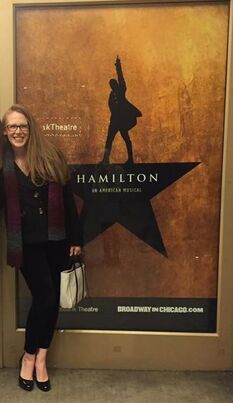
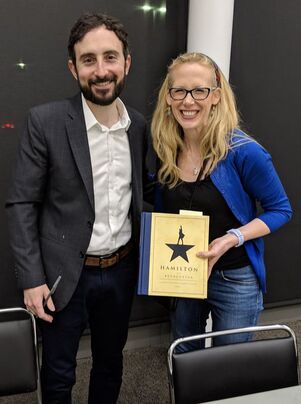
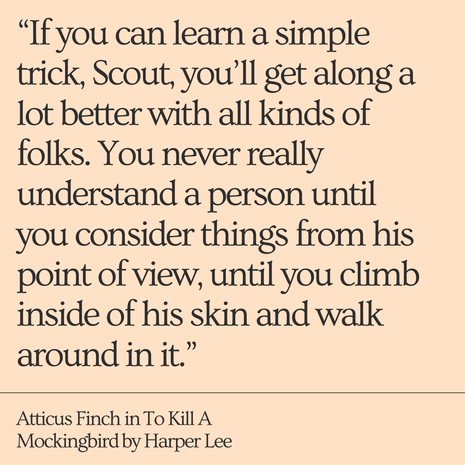

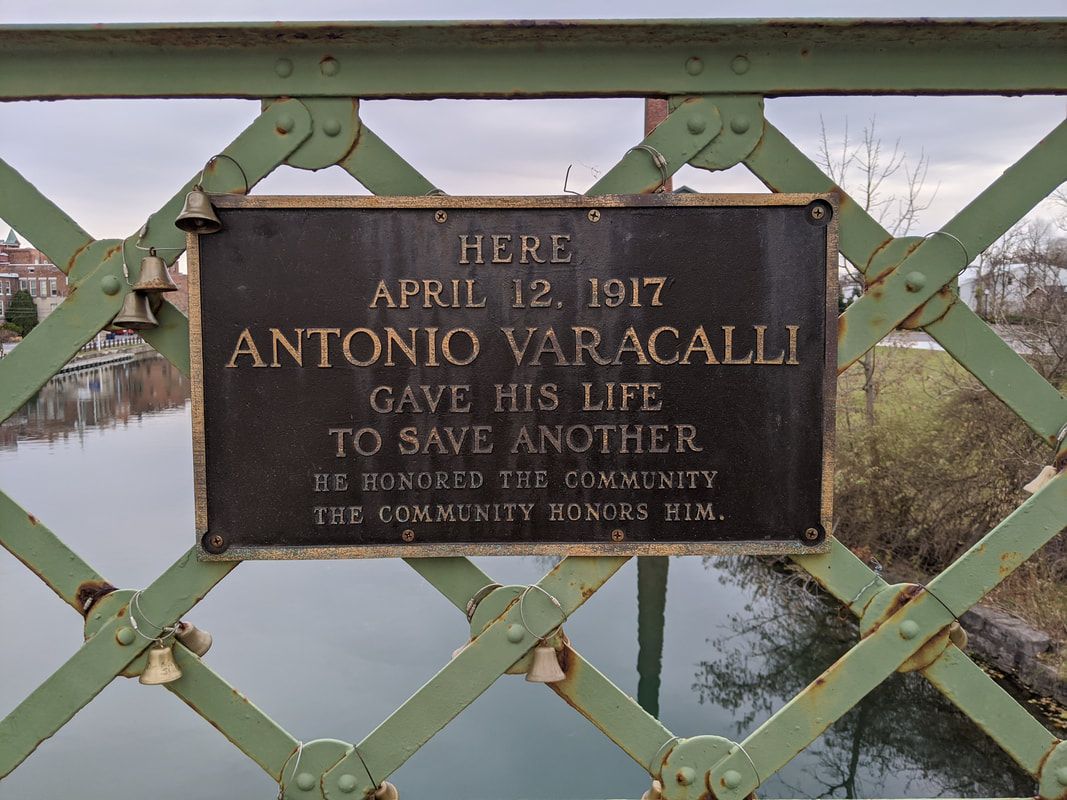
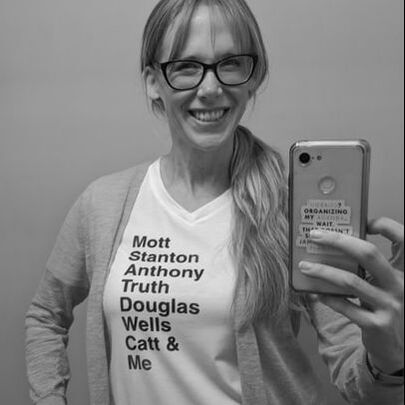
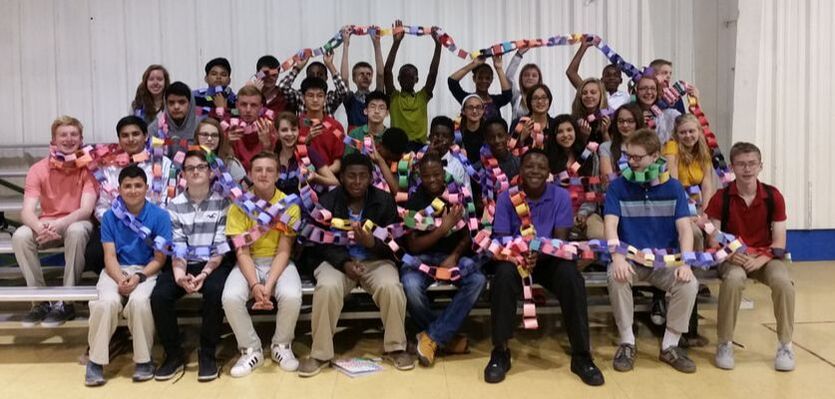

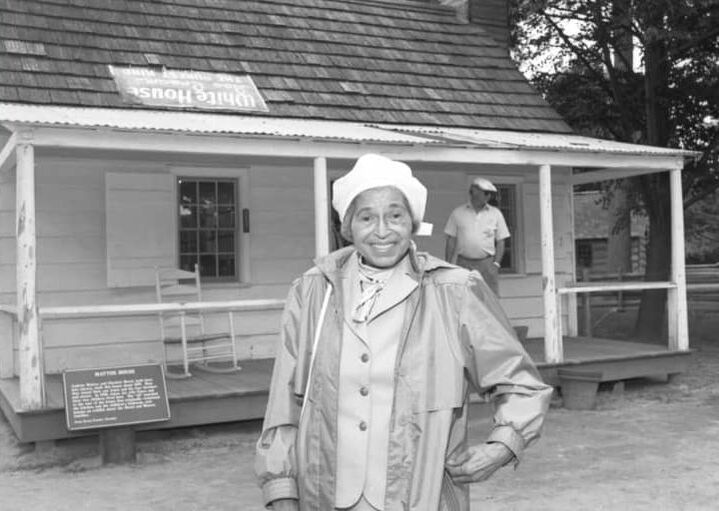
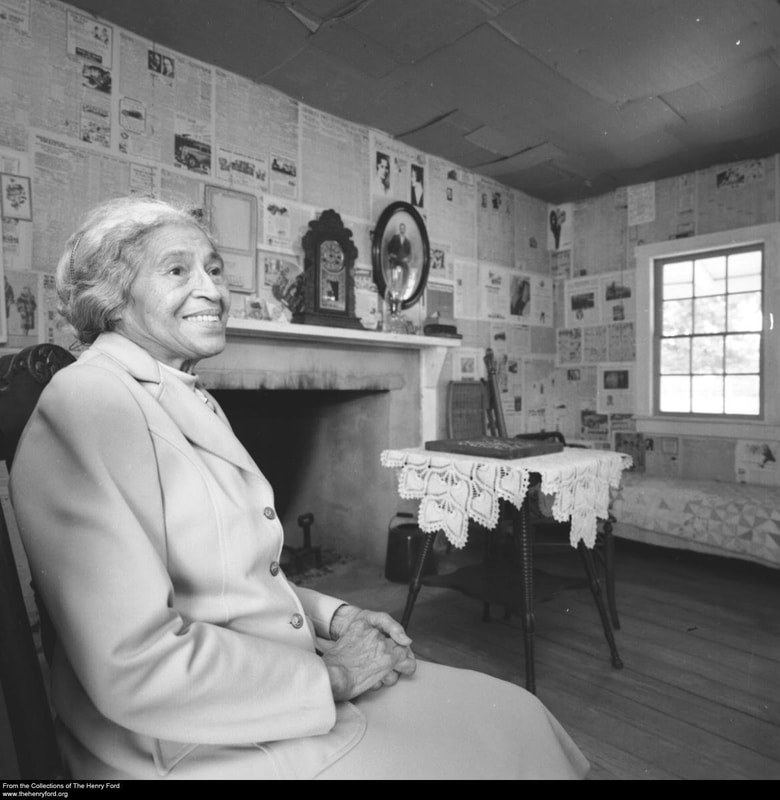
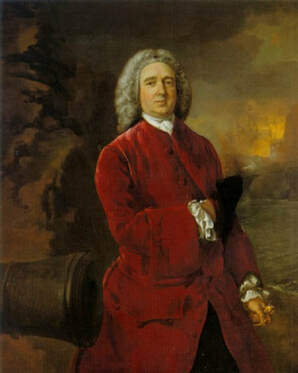
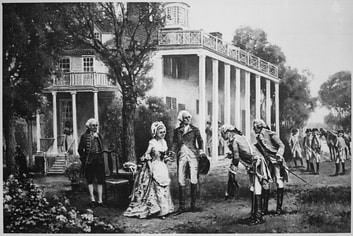
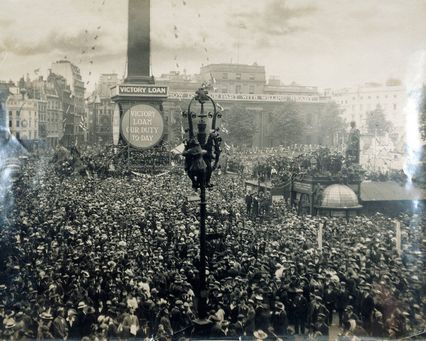

 RSS Feed
RSS Feed